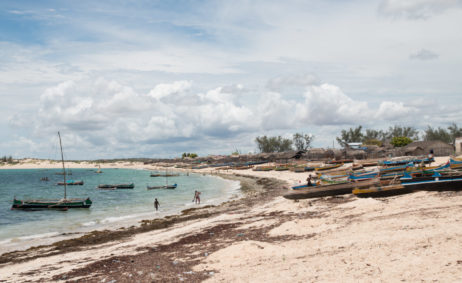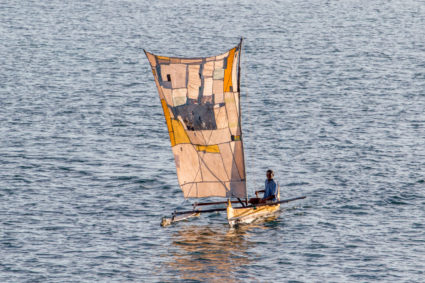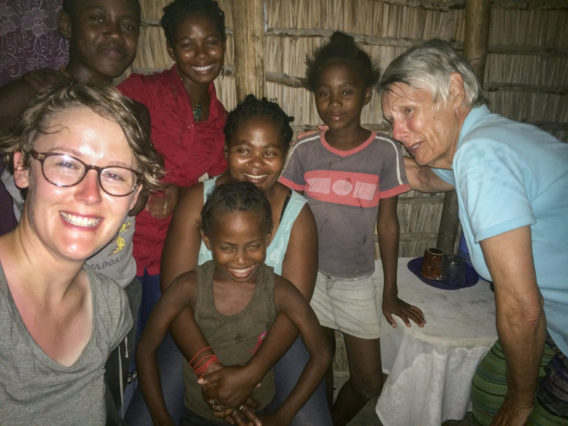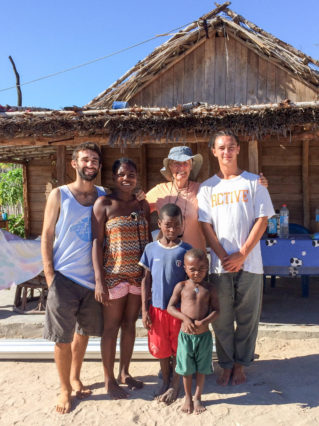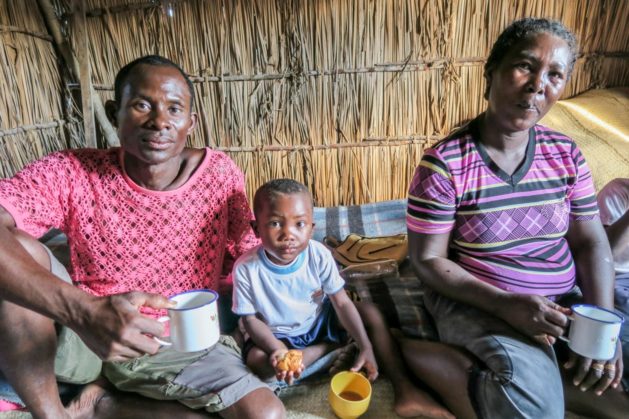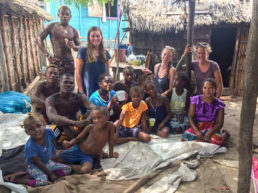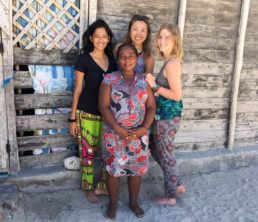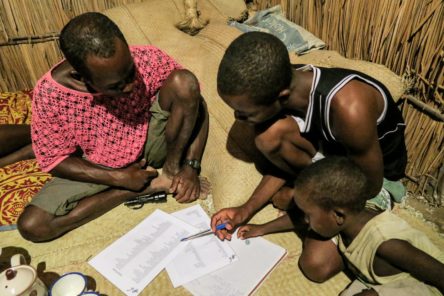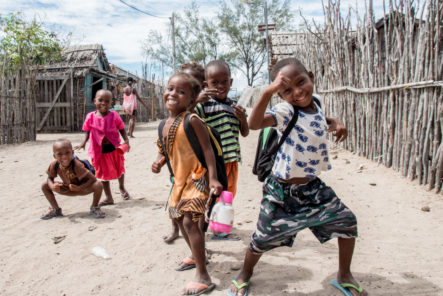Andavadoaka is a remote village on the southwest corner of Madagascar, and the base of Blue Ventures’ marine conservation expeditions. Like all villages in the Locally Managed Marine Area (LMMA) known as Velondriake (meaning “to live with the sea”), Andavadoaka survives by subsistence fishing.
Every morning pirogues sail out to sea, but the community has reported concern over their observed decreases in catches. Despite significant steps in locally-led conservation, they know that their children and grandchildren will be unable to follow their traditional way of life, unless some alternative livelihoods are found.
This is why Blue Ventures’ Homestay programme is so important. It provides families with an alternative source of income. This income can be spent on basic foodstuffs such as rice and beans or on their children’s education, and the fish they catch can then be kept for themselves rather than being sold, providing crucial dietary protein.
“The open-hearted nature of the Vezo people makes them excellent hosts”
The alternative income that tourism brings is the bottom line of the Blue Ventures Homestay programme, but the benefits to all the parties, volunteers and families alike, go way beyond that. As a recent volunteer with BV I had the unique and delightful experience of being hosted by several different families. The open-hearted nature of the Vezo people makes them excellent hosts, and I was pleasantly surprised by the warmth of the welcome I received. Our hosts did their very best to ensure volunteers had food to their liking, enough of it, and, in so far as they were able, to ensure that we were comfortable.
For our part, the homestay offered a unique opportunity to experience first-hand a simple and traditional way of life, totally unlike anything that I had previous knowledge of. If you are thinking about volunteering or staying in a homestay, I have to say that what you get out of the experience will depend on your degree of openness and your Attitude, capital A intended.
You will discover the efficacy of “bucket showers”, so don’t go in expecting running water and a fully equipped bathroom. Your hosts may have a table and chairs, but equally they may not. You will have the privilege of sharing what the family has to offer so an ‘attitude of gratitude’ will mean a lot to them and will help you to integrate any (understandable perhaps) negative feelings over the lack of facilities. Focus on what there is, not what there is not.
Communicating with host families can be challenging, but also easier than you would think. If you can have some interaction then obviously both parties will have a more meaningful experience, so here are some suggestions I have:
- Work hard to master the Malagasy vocabulary you’ve been given and don’t be afraid to use it, likewise, if you have some French. Your family will most likely also be passionate about learning English so be willing to spend time sharing learning together
- Always have a notebook and pencil with you, sometimes a little sketch, no matter how pathetic, can explain better what you’re trying to say.
- Family is of prime importance to the Vezo so focus on that, theirs and yours, on the kids and animals you’ll see running around, on the universals that we all hold dear.
- If you have space in your luggage, bring something special from home, like photos of your home or family, to show to them and talk about.
Remember that this experience is even stranger for the hosts than it is for the volunteer, they will initially be very shy, but if you can be open, friendly and positive rather than embarrassed, and most of all creative in your interaction, then I guarantee you will have one of the most interesting and rewarding experiences of your life.
Want to experience Andavadoaka Homestays for yourself as a Blue Ventures volunteer?
Join one of our marine conservation expeditions in Madagascar.
Cover photo: Jun Gao


